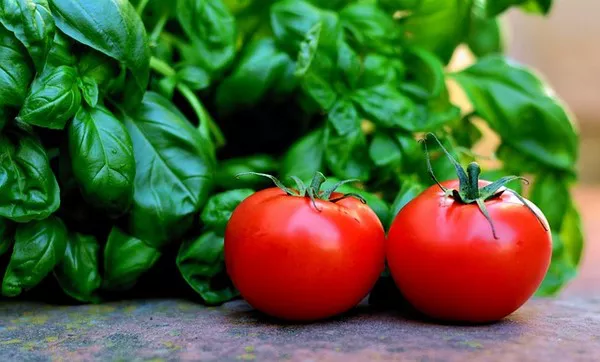Plants have evolved defense mechanisms to repel potential attackers, but these basal immune responses only slow down the colonization of pathogens, leading to significant losses in plant production. Fortunately, plants can enter a state of enhanced defense through “defense initiation” when exposed to microbe-associated molecular patterns (MAMPs) or specific chemical compounds, such as β-aminobutyric acid (BABA).
Horticulture Research published a research paper entitled “BABA-induced pathogen resistance: a multi-omics analysis of the tomato response reveals a hyper-receptive status involving ethylene” that aimed to understand the protective effect of BABA on tomato plants against various pathogens.
The study found that BABA treatment significantly reduced the sporulation of Oidium neolycopersici and the spreading of Phytophthora parasitica but had no effect on Botrytis cinerea. Transcriptomic and proteomic analyses were performed 24h and 48h after BABA treatment, identifying 1,523 differentially expressed genes and 319 differentially expressed proteins. The study revealed that BABA treatment leads to extensive reprogramming of cellular processes in tomato.
By comparing different RNA-seq data, almost 50% of the BABA-upregulated genes overlapped with genes differentially regulated during MAMPs-triggered immunity (MTI), suggesting that BABA treatment exhibits common features with MTI. Moreover, the study found that BABA primarily acts as a stress factor in tomato plants, inducing the upregulation of 130 transcription factor (TF) genes, including ERF, WRKY, MYB, and NAC families, which play essential roles in regulating stress responses in plants.
The study also showed that the BABA stress response is mainly orchestrated via ET and JA signaling, with a slight decline in SA levels in BABA-treated leaves. Additionally, amino acid metabolism was explored in BABA-treated plants, showing an increase in levels of enzymes such as GlnRS, Glu, and GABA, affecting nitrogen metabolism and the phenylpropanoid pathway.
Overall, this study reveals that BABA triggers a primed state in plants, enhancing their defense responses against pathogens. The understanding gained from this study has the potential to revolutionize pathogen resistance strategies in crops, improving agricultural practices and yields.


